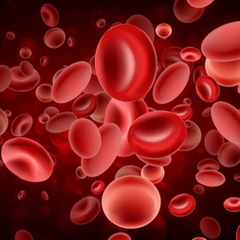
Patient Profile 3: A 68-Year-Old With Multiple Myeloma
The panel presents the case of a 68-year-old man with multiple myeloma and offers their initial impressions.
Episodes in this series

Transcript:
Peter Voorhees, MD: …This is case No. 3. This is a 68-year-old man who presents to the clinic reporting weakness, fatigue, and bone pain. The patient has a past medical history of hypertension that’s well controlled and hyperlipidemia that’s also well controlled. His performance status is 1. His hemoglobin is 9.8. His creatinine and calcium are normal. Blood work shows a significant increase in serum κ light chains and increased IgG. He has an IgG [immunoglobulin] kappa M spike and an elevated β-2 microglobulin. Let’s just say that it’s a 4.5. He has stage 2 disease. A bone marrow biopsy shows 45% clonal plasma cells. He has normal cytogenetics and his FISH [fluorescence in situ hybridization] panel is negative for high-risk molecular abnormalities. PET-CT shows uptake in lytic disease in the spine and pelvis, but no impending fractures. Reed, we have a patient in his late 60s with a new diagnosis of symptomatic myeloma. What are you going to start him on?
Reed Friend, MD: I think we know, Dara-RVd [daratumumab plus lenalidomide, bortezomib, dexamethasone]. That’s my choice.
Peter Voorhees, MD: Let’s say the patient has diabetes that’s poorly controlled and he has bad diabetic neuropathy.
Amy Soni, MD: Then maybe think about carfilzomib instead of the Velcade.
Peter Voorhees, MD: Yes. And one thing that I’ll point out, early on, getting Dara-KRd [daratumumab, carfilzomib, lenalidomide, and dexamethasone] approved was difficult, but it’s actually one of the other regimens listed in the NCCN [National Comprehensive Cancer Network] guidelines now. So that’s made it a lot easier to actually get that approved. And we had a study of Dara-KRd at Levine Cancer Institute. You know, a number of you put patients on that study and just like with the MANHATTAN results and the MASTER results, which also looked at Dara-KRd in a slightly different way, we’ve had absolutely phenomenal results with that regimen. I think for the patient with neuropathy, a Dara-KRd approach would make a lot of sense, and certainly a patient like this would be a transplant candidate.
Transcript is AI-generated and edited for clarity and readability.
Newsletter
Stay up to date on recent advances in the multidisciplinary approach to cancer.








































